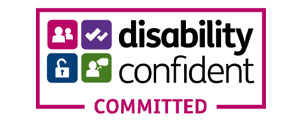IR35 SUMMARY
IR35 Summary
From April 2020 the administration of IR35 was meant to have changed, this got delayed for a year due to Covid-19. IR35 known as intermediaries legislation was introduced in 2000 by HMRC to stop ‘disguised employees’ from avoiding tax by operating as contractors, whilst working in a similar way to employees. The liability has mostly fallen on contractors, until April 2020, when hirers will be responsible for assessing the IR35 status of contractors.
Hirers Responsibility
From April 2020 Hirers across the private and not for profit sectors will be responsible for conducting ‘reasonable care’ in case-by-case assessments of contractor’s IR35 status. Hirers will be liable for these assessments meaning it is important to consider the key factors outlined by HMRC to determine whether a contractor operates ‘inside’ IR35 or ‘outside’ IR35.
Contractors Responsibility
Private sector and Public sector contractors have been impacted differently by IR35. From April 2020 private sector contractors will be subject to the same process as public sector contractors. Hirers will assess the status of a contractor to determine how their relationship most aligns with IR35 regulation. Factors such as in work practices and written contracts can be part of the assessment, so it is important for contractors to understand how they can demonstrate most accurately, their service.
IR35 excludes “small” businesses, meaning the contractor could still be responsible if their business falls in line with two or more the following;
- Annual turnover is no more than £10.2 million
- Balance sheet total is no more than £5.1 million
- No more than 50 employees.
In this case a contractor will be responsible for determining their own IR35 status and paying relevant taxes/dividends etc.
IR35 Key Aims
The changes to IR35 are important to HMRC as they aim to stop contractors from intentionally avoiding tax or attempting to pay reduced tax by changing employment status not job role. For example, an employee could stay within one company and maintain the same responsibilities, whilst officially leaving as an employee on a Friday and returning as a contractor on a Monday. Often this reduces the amount of tax payable by the contractor, whilst they sustain the same job role and income. HMRC will use IR35 legislation to ensure contractors providing a service will pay broadly the same tax and national insurance contributions as an employee would.
Outside IR35
If a contractor is identified by a hirer as outside IR35 they are deemed to be operating a genuine business. Contractors outside IR35 are responsible for paying their own salaries and tax payments. Even if a hirer has declared a contractor outside IR35, HMRC can still investigate a contract. Although the hirer is responsible for the assessment, it is important for contractors to produces relevant evidence and ensures they agree with the outcome. It is the legal requirement for a hirer to provide evidence of assessment to a contractor when requested.
Inside IR35
If a contractor falls inside IR35 they are subject to PAYE and considered an employee for tax purposes. Recruitment agencies or umbrella companies can act as an employer by paying through their payroll, deducting tax and NICs. To ensure the required tax is paid, a contractor may be required to make a deemed payment of income tax at the end of the tax year. If HMRC determine a contractor inside IR35 who has been operating outside IR35, the contractor (or hirer in the case where unreasonable care has been placed), will be responsible for paying income tax, interest, NICs and penalties payable during the accounting period in question.
Who is Responsible?
Compared to the responsibility previously being held in the main by the contractor, the changes in 2020 will require hirers to conduct assessments before engaging with contractors. Hirers will be responsible for determining whether a contractor falls inside or outside IR35. A hirer may become liable for tax that should have been paid during an accounting period by a contractor, if the hirers cannot demonstrate ‘reasonable care’ within the assessment.
What constitutes reasonable care?
To assess a contractor the following indicators can be reviewed. It is important for a hirer to use a demonstrable level of care when assessing contractors to avoid financial liability. There are no direct requirements laid out by HMRC to outline reasonable care. Reasonable care can be demonstrated by conducting case by case assessments opposed to blanket determinations that do not accommodate for individual circumstances.
Key Indicators for Hirers
Although ‘reasonable care’ has not been elaborated on by HMRC, there are key indicators that hirers can use in making their determination, based on learning curves of the public sector. These indicators can be displayed in working practice as well as written contracts between contractors and hirers.
3 Core Factors: Supervision – Substitution – Mutuality of Obligation
Supervision and Control should remain largely with the contractor if operating outside IR35. As a contractor has been instructed for their service, they should maintain autonomous control of the process. For example, working times, schedules or working locations. If a hirer is involved in this area of service, HMRC could deem the employment relationship inside IR35.
Right of Substitution enables contractors to substitute themselves with another worker or instruct help from other workers. This should be possible when operating outside IR35, as it demonstrates that the contractor has been instructed based on their skills/qualifications not based on them personally. This clause is not at the cost of the hirer, as reasonable grounds will allow them to veto substitution.
Mutuality of Obligation affects both parties. When a contractor operates outside IR35 they hold no obligation to accept ongoing jobs from hirers. Instead, contractors are obliged to accept a job offered to them on a project-by-project basis. Overall, a client has no obligation to offer a contractor more work in the future, and a contractor has no obligation to take such work on.
Other Indicators
Financial Risk is considered a key indicator of contract work outside of IR35. Contractors payments are often subject to the delivery of their service, unlike employees who are unlikely to receive a negative impact to their salary, based on poor performance. Contractors often receive payment when a service is complete or at key milestones of a project. If a worker is receiving a regular or guaranteed income they are likely to be inside IR35.
Provision of Equipment such as resources, training and insurances provided by the hirer could be considered as indicators of employment (operating within IR35). Contractors providing their own equipment, training and insurances is likely to constitute as business outside IR35.
Employee Benefits commonly associated with employment such as holiday pay, sick pay and pension contribution can all be considered indicators of an employment relationship inside IR35.
Get in touch with Starfish if you are an Interim candidate or a hiring client. We have the skills and expertise to advise you on the best ways to approach the IR35 changes effective in April 2021.
catherine.kift@starfishsearch.com
07591 952632
Expert Interim Talent: How to Launch Your Portfolio Career
Today's business landscape demands agility and specialised expertise. Discover how to leverage your skills across diverse, high-impact projects, gaining unprecedented flexibility and autonomy. Forget "holding the fort", modern interims are strategic leaders, driving change and delivering results in times of transformation.
Recruiting leaders in perilous times
Leadership appointments have always carried weight, but in the current climate they carry a different kind of exposure. For those of us working at the interface between Boards and candidates, it is clear that the rules of engagement have shifted, and that executive search must shift with them.
In praise of Gen Z
I surveyed my multi-generational team on what they wanted from work. Here's what I learned.
ACCREDITATIONS


ESPO is a public sector owned professional buying organisation (PBO), specialising in providing a wide range of goods and services to the public sector for over 40 years. Starfish Search has been awarded a place on ESPO’s Strategic HR Services framework (3S). Services we offer under the framework include: Lot 1, Executive and Managerial Interim Recruitment Lot 2, Executive and Managerial Permanent Recruitment.


Starfish are proud to be certified Disability Confident Committed. This scheme provides employers with the knowledge, skills and confidence needed to attract, recruit, retain and develop disabled people in the workplace.


Crown Commercial Service supports the public sector to achieve maximum commercial value when procuring common goods and services. In 2020/21, CCS helped the public sector to achieve commercial benefits equal to £2.04bn - supporting world-class public services that offer best value for taxpayers. Starfish Search has been named as a supplier on Crown Commercial Service’s Executive and Non-Executive recruitment. Services we offer under the framework include: Lot 3 - Non-Executive and Public Appointments.


Bloom, launched in 2012 is the UK’s leading marketplace for professional services. They provide an end-to-end solution for the procurement, contract management and payment of all professional services, via the compliant NEPRO³ framework. Their public sector clients have access to 20 professional services categories and over 4500 accredited suppliers. Bloom provides swift routes to market via either direct award or mini competition. Starfish is an accredited supplier to BLOOM; our services can be accessed via this framework - Executive and Non-Executive Search and Interim Management.
Join the starfish team
We hire people who bring insight, integrity and ambition to their work. If you’re ready to contribute to shaping the future of leadership and you want to explore our current opportunities please click the link below.
find out more